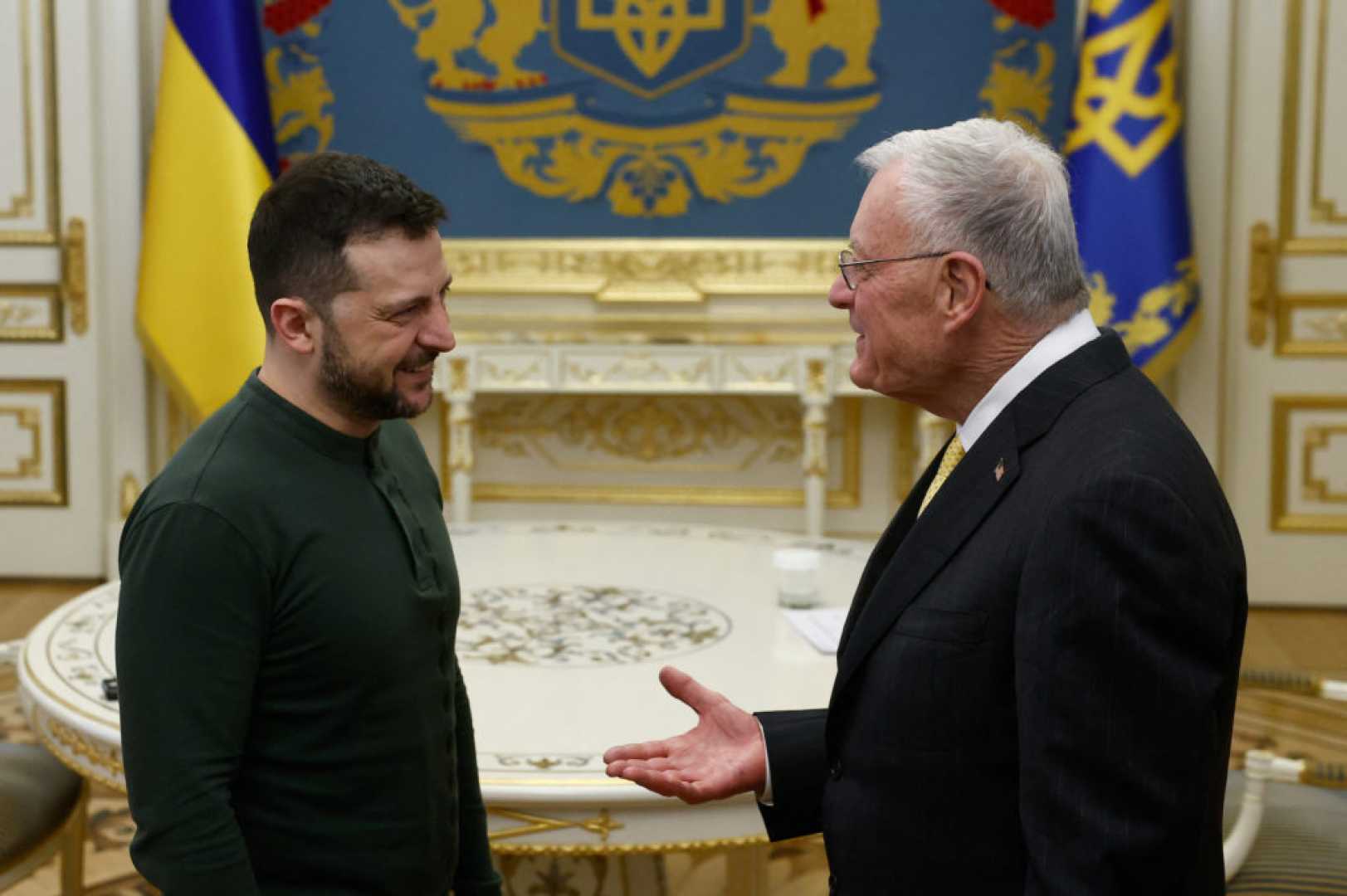Politics
U.S.-Ukraine Agreement Sparks Economic Sovereignty Concerns

KYIV, Ukraine — The Trump administration is pressing Ukraine to approve a controversial agreement that would grant the U.S. extensive control over Ukrainian economic resources. However, Ukrainian leaders appear unlikely to accept the terms, setting the stage for potential conflict between the two allies as Ukraine continues its struggle against Russian aggression.
Sources within the Ukrainian government have indicated hesitation regarding the draft agreement, which offers the U.S. the first right to explore and manage a range of Ukrainian natural resources, including metals and energy infrastructure. Daniel Bilak, a lawyer at Kinstellar in Kyiv, acknowledged the significant implications for Ukraine’s economic sovereignty, stating, “Ukrainians feel that they cannot give up their entire economic sovereignty for nothing.”
The proposed 55-page document, viewed by The Wall Street Journal, aims to fulfill President Trump’s objective of recovering billions in military and financial support provided to Ukraine since Russia’s invasion began in 2022. Trump has cited U.S. support at around $350 billion, contrasting sharply with Ukrainian estimates of $100 billion.
In its current form, the draft proposes a limited partnership known as the “United States-Ukraine Reconstruction Investment Fund,” which would be registered in Delaware. The fund’s structure raises eyebrows among experts, with Tymofiy Mylovanov, president of the Kyiv School of Economics, noting, “I don’t know how you can write an intergovernmental commercial agreement.” He further expressed skepticism about the viability of the agreement alongside ongoing investment from the European Union, World Bank, and International Monetary Fund.
The Trump administration has presented the draft as a means to reinforce ties between the two nations. National Security Council spokesman James Hewitt stated, “The mineral deal offers Ukraine the opportunity to form an enduring economic relationship with the United States that is the basis for long-term security and peace.” However, Ukraine’s response has been tepid, focusing on a need for more substantial security guarantees that are currently absent from the proposal.
In the midst of ongoing deliberations, Ukraine’s economy minister, Yulia Svyrydenko, remarked to Parliament, “Any public discussions about the text of this agreement at this stage only harm the negotiations and hinder constructive dialogue with our American partners.”
As the situation develops, analysts are noting that many terms within the draft could be unpalatable to Ukraine. Among these, the fund would maintain a right of first refusal on all domestic natural resource and infrastructure projects, effectively putting U.S. control at the forefront. This stipulation raises concerns as Ukraine seeks to diversify its investment partnerships.
Should Ukraine sign the agreement, it would be tasked with submitting a licensed resource project list within 45 days. Furthermore, any attempt to negotiate with alternative investors would be hampered as they could not offer better terms than those set by the fund for a year.
The chilling effect of tensions between Trump and Ukrainian President Volodymyr Zelensky remains palpable, particularly after Zelensky questioned the original proposal — an act that sparked widespread concern in U.S.-Ukraine relations. Military supplies and intelligence sharing were temporarily paused following that exchange.
Rachel Rizzo, senior fellow at the Atlantic Council, articulated uncertainty regarding Trump’s next steps if Ukraine were to reject the agreement. “The administration is sort of winging it, at this point, when it comes to supporting Ukraine,” she asserted, suggesting that pressure tactics may be employed to sway Ukraine.
Despite Ukraine’s reluctance, there remains a shared desire for cooperation. Shelby Magid, deputy director of Atlantic Council’s Eurasia Center, stated, “Both sides still want this,” though he recognizes that further negotiations could heighten tensions.
The implications of this draft are significant, and as discussions continue, all eyes will be on how Ukraine balances its sovereignty with the strategic demands of a critical ally.












